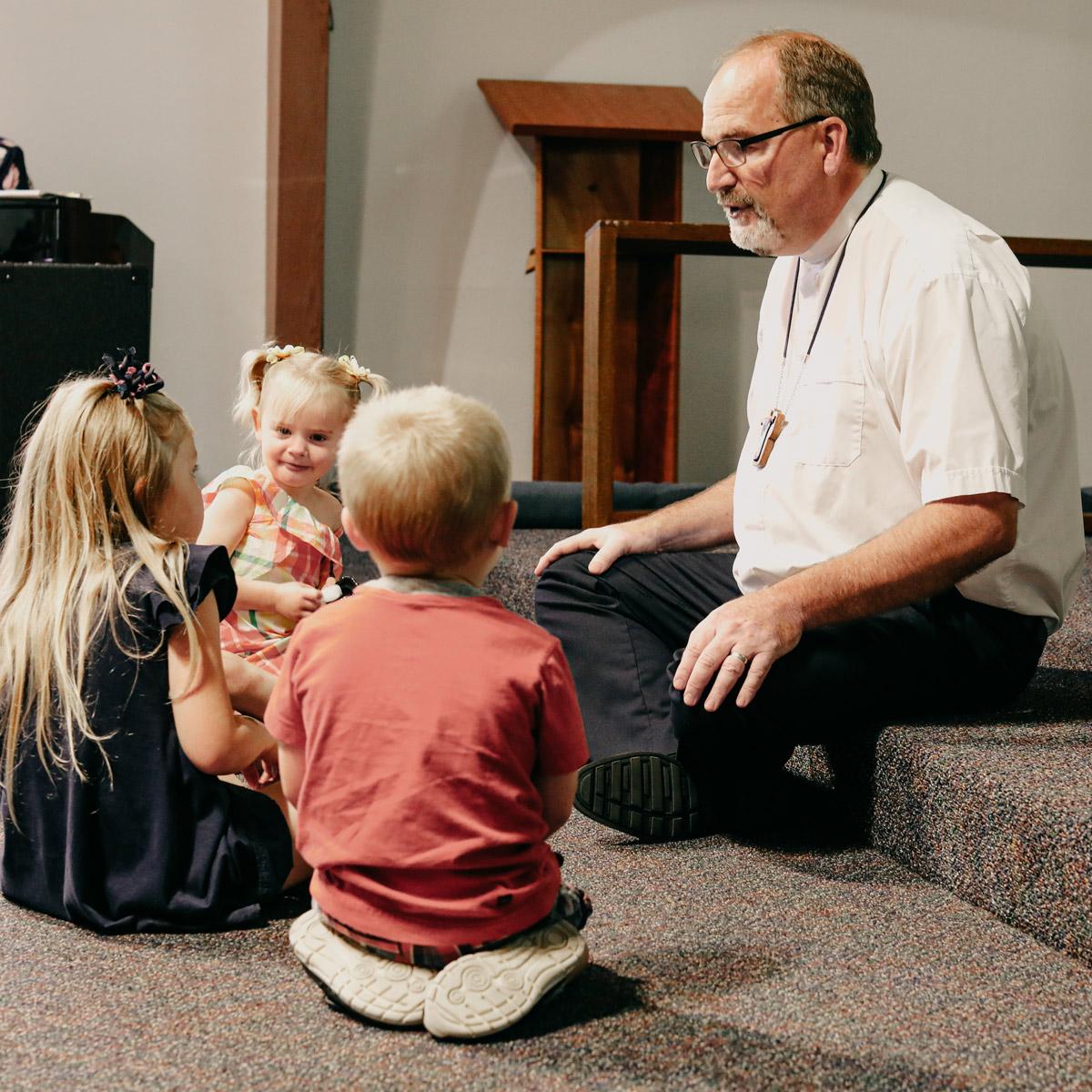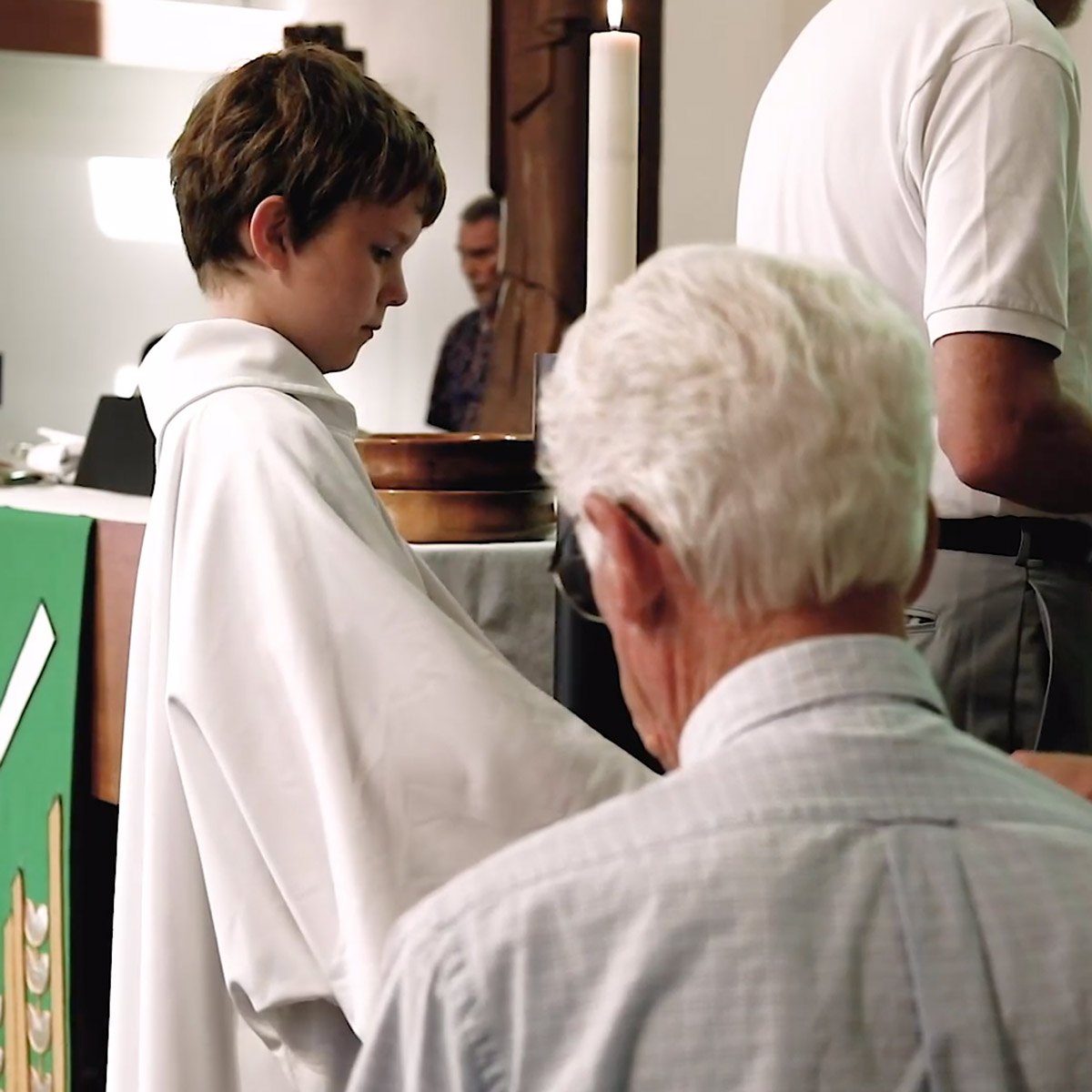
March 21, 2021 | The Trial
The Trial
What’s the most famous trial in the last one-hundred years? (Slide) Was it the 1925 Scopes Monkey Trial in Dayton, Tennessee—after which, our nation allowed evolution to be taught in public schools? (Slide) Was it the Nuremberg Trials, when leaders of Hitler’s Nazi Germany confessed their WW II atrocities? (Slide) Was it the O. J. Simpson trial with the famous black glove? (Slide) Was it the Timothy McVeigh trial? McVeigh—you may remember—was tried for killing 168 people in Oklahoma City on April 19, 1995. Or maybe you’re thinking about the Unabomber trial, the Saddam Hussein trial or the Martha Stewart trial.
(Slide) What are the most important words in any trial? Innocent, guilty and free. Every trial hinges on these three words—innocent, guilty and free. Let’s use these words to understand the most famous trial ever—one for the ages.
(Slide) The trial takes place in Pilate’s Judgment Hall. The accused? Jesus. The accusers? The Jewish leaders. The judge? Pontius Pilate. Innocent. Guilty. Free.
Innocent—That’s Jesus. “For Pilate knew that it was out of envy that the Sanhedrin had delivered Jesus up.
(Slide) Besides, while he was sitting on the judgment seat, his wife sent word to him, ‘Have nothing to do with that innocent man, for I have suffered much because of him today in a dream.’” (Matthew 27:18–19) Six times in his passion narrative, Matthew calls Pontius Pilate “the governor.” As Judea’s governor, Pilate is sitting on the judgment seat. That’s because Pilate has the power of imperium—that’s the Latin word for the person who decides formal death penalty cases. In Judea, Pilate alone has the power of imperium. You live or die according to Pilate.
(Slide) Jesus is innocent! Pilate doesn’t completely understand it; but Pilate’s wife understands it! “Ha!” You women say. “Even then, women were smarter than men!” Pilate’s wife knows Jesus is innocent. The rest of the New Testament takes this further—a whole lot further. The New Testament says Jesus is absolutely and perfectly innocent.
For example, Hebrews 4:15 says, “Jesus was without sin.” Jesus could have broken bread with the devil in the wilderness or broken ranks with the Father in Gethsemane—but he didn’t. Jesus was perfect. Always honest in the midst of lies. Relentlessly kind in a world of hatred and self-centeredness. Heavenly-focused in spite of countless distractions. When it came to sin, Jesus never did it. Innocent. That’s Jesus.
Guilty—That’s Barabbas. “And they had then a notorious prisoner called Barabbas.” (Matthew 27:16) Barabbas was a Jewish Robin Hood. Barabbas took money from rich Romans and gave it to poor Jews. That made Barabbas a Jewish super star!
Barabbas was famous as an insurrectionist. Insurrectionists were anti-Roman fighters who belonged to a political group called Zealots. Zealots had one agenda. Get Rome out of Judea—period. Zealots were ready to do anything to make that happen—even slit throats.
Barabbas wasn’t a petty thief or a second-hand scoundrel. Rome wouldn’t condemn a small-time crook to crucifixion. Rome would, however, execute an notorious insurrectionist—a first class killer. That was Barabbas. He was a heartless, brutal criminal. Barabbas had anger in his heart and blood on his hands. Barabbas would be crucified by noon. Dead by sundown. His only future was a hammer, three nails and a God-awful death by hanging on a cross. Innocent. That’s Jesus.
Guilty—that’s Barabbas. Guilty—That’s us, for sure. We’re all born “dead in transgressions and sins” (Ephesians 2:1). We are “lost.” (Luke 19:10) “Prone to wander, Lord I feel it. Prone to leave the God I love.” We are “blinded by the god of this age” (2 Corinthians 4:4), and “hopeless” (Ephesians 2:12). Our finest deeds are “dung” or “rubbish” and “manure” (Philippians 3:8) and “unclean rags” (Isaiah 64:6). Just call us “Barabbas.”
Paul puts it this way in Romans 7:24, “What a wretched man I am!” Not “I was a wretch.” No. “I am a wretch!” Paul uses a present tense verb! Right now, today, as a believer, truth be told—I’m still a wretch.
The Bible calls it sin. Sin isn’t a regrettable lapse or an occasional stumble. Sin stages a coup against God’s rule. Sin storms the castle. Sin lays claim to God’s sovereign throne. Sin defies God’s universal authority. Sin says, “Get out, God. Get lost, God. I’m in charge here, God!”
It’s easy in church to want to live in peace with all people; it’s harder, however, to act on that when you didn’t get promoted at work because you didn’t have the right connections. It’s easy in church to want to help the poor, but it’s hard to do that when you see a new flat-screen TV—besides, you work so hard for your money. It’s easy in church to say one thing and then go into the world and do the exact opposite.
The prophet says in Isaiah 53:6, “We all, like sheep, have gone astray and each of us has turned to his own way.” You have your way. I have my way. Your way may be accumulation. Her way may be intoxication. His way may be flirtation. We all have turned to our own way. Just like sheep.
I don’t like to confess it. In fact, I’d just-a-soon avoid it. I’m Barabbas. I’m a prisoner to my past, my low-road choices and my high-minded pride. God has declared me guilty. What’s his sentence? Romans 6:23, “The wages of sin is death.” Death. Let that sink in. Innocent—that’s Jesus. Guilty—that’s Barabbas. Guilty—that’s us.
Free—That’s Barabbas. “Now the chief priests and the elders persuaded the crowd to ask for Barabbas and destroy Jesus. The governor again said to them, ‘Which of the two do you want me to release for you?’ And they said, ‘Barabbas.’” (Matthew 27:20–21) The word “persuaded”—rendered a past tense verb—is better translated here as a past perfect tense verb—“had persuaded.” What’s the difference? The Sanhedrin had all their ducks in row long before this early morning trial. “Had persuaded.”
Meaning what? Meaning this crowd is different from the crowd on Palm Sunday. The Palm Sunday crowd consisted of Galileans. This crowd on Good Friday consisted of Judeans—up at 6:00a to get Barabbas off the hook. The Galileans are camped outside of Jerusalem still sleeping!
Listen! Can you hear him? It’s the Roman guard with the key. He unlocks the prison door, swings it open and shouts, “Barabbas! You’re free. They chose you to go free!” Barabbas stumbles into the light of day. Shackles gone. Crimes pardoned. Free!
Free—that’s Barabbas. Free—That’s us, for sure. How so? Christ endured not just the Roman nails, the mockery and the spear—but also the gears of God’s grinding justice. “The gears of God’s grinding justice? Really?” Yes, really. God doesn’t overlook sin. God doesn’t say, “Hey, no big deal.” That’s not how it works. God is holy, righteous and perfect. God can’t overlook sin. God must punish sin.
That’s why God placed all our sin on Jesus. It’s accurate, therefore, to say, “Christ substituted himself for the world.” It’s life-changing, however, to say, “Christ substituted himself for me. My sins? They are many. God’s mercy? It is more—so much more.
We’re free! Psalm 146:7, “The Lord sets prisoners free.” Romans 8:2, “The law of the Spirit of life has set you free.” Galatians 5:1, “It is for freedom that Christ has set us free.” Revelation 1:5, Jesus “has freed us from our sins by his blood.” There are a million ways to become a prisoner. There is only one way to be free. His name is Jesus.
Just think. The outcome of history’s most famous trial means that the Savior’s liberating power sets us free from the condemnation of our sin; free from the pain of our past; free from worry about our future. No one can take this freedom from us. No law can stop it. And no power on earth or hell can destroy it.
Innocent, guilty and free. These are the most important words in any trial. What would you say is the most life-changing of the three? Innocent? Guilty? Free?
That’s easy! Free! John 8:36, “If the Son sets you free, you will be free indeed.” That’s us! Like Barabbas! By faith, forevermore, free! Amen. (Places of the Passion)















